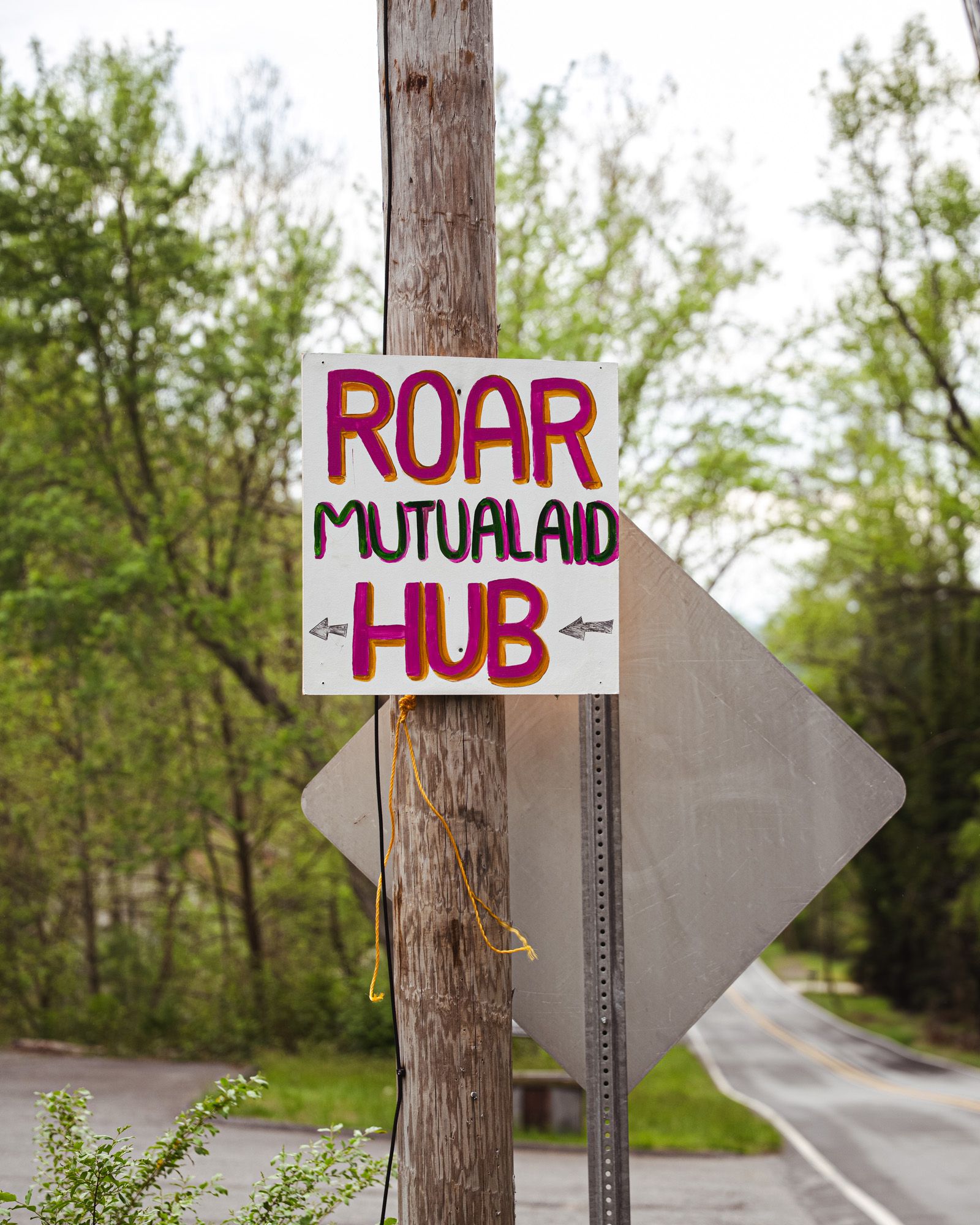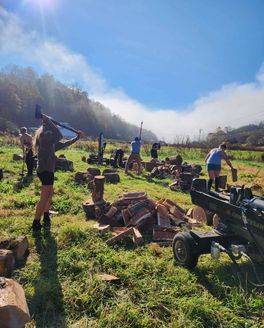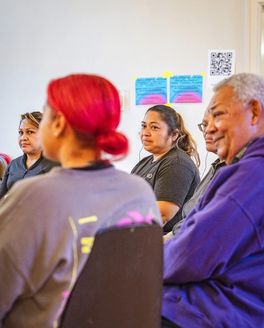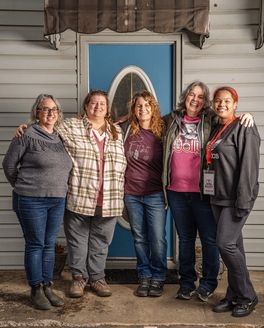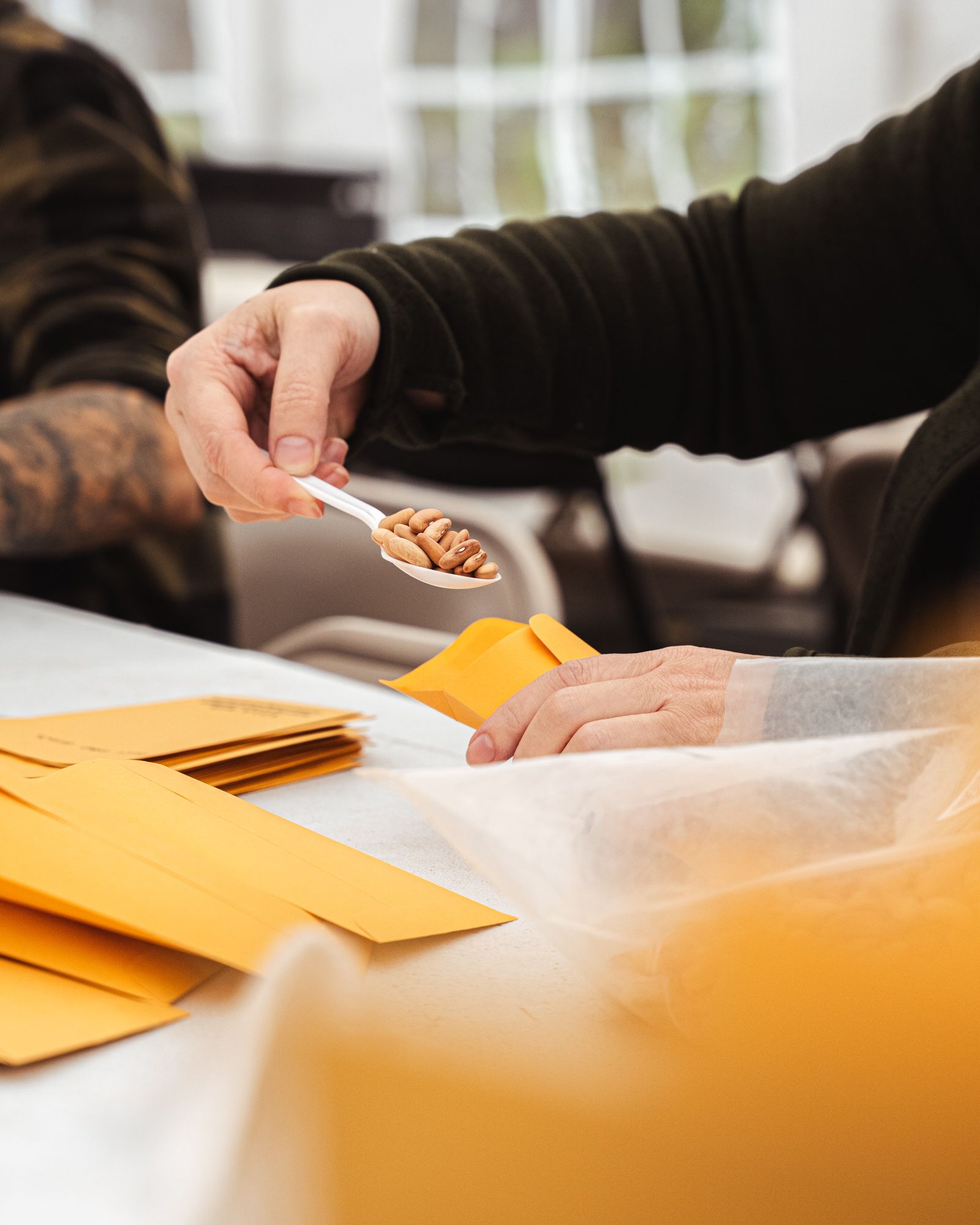
Choosing Each Other in Southern Appalachia
In Southern Appalachia, care and resistance have always lived side by side. The same mountains that raised generations of barn-raisers and coalfield organizers also bore witness to the ways power has worked to divide and exploit. If you want to understand the work that Rural Organizing and Resilience (ROAR) is doing today, the mutual aid, the disaster response, the building of long-term community infrastructure, you have to start with the memory of what came before.
Long before Hurricane Helene, before ROAR was a known name in Western North Carolina, a different kind of organizing was happening here. Not with grant funding or professional titles, but through relationships. Families raising food together. Neighbors repairing homes.
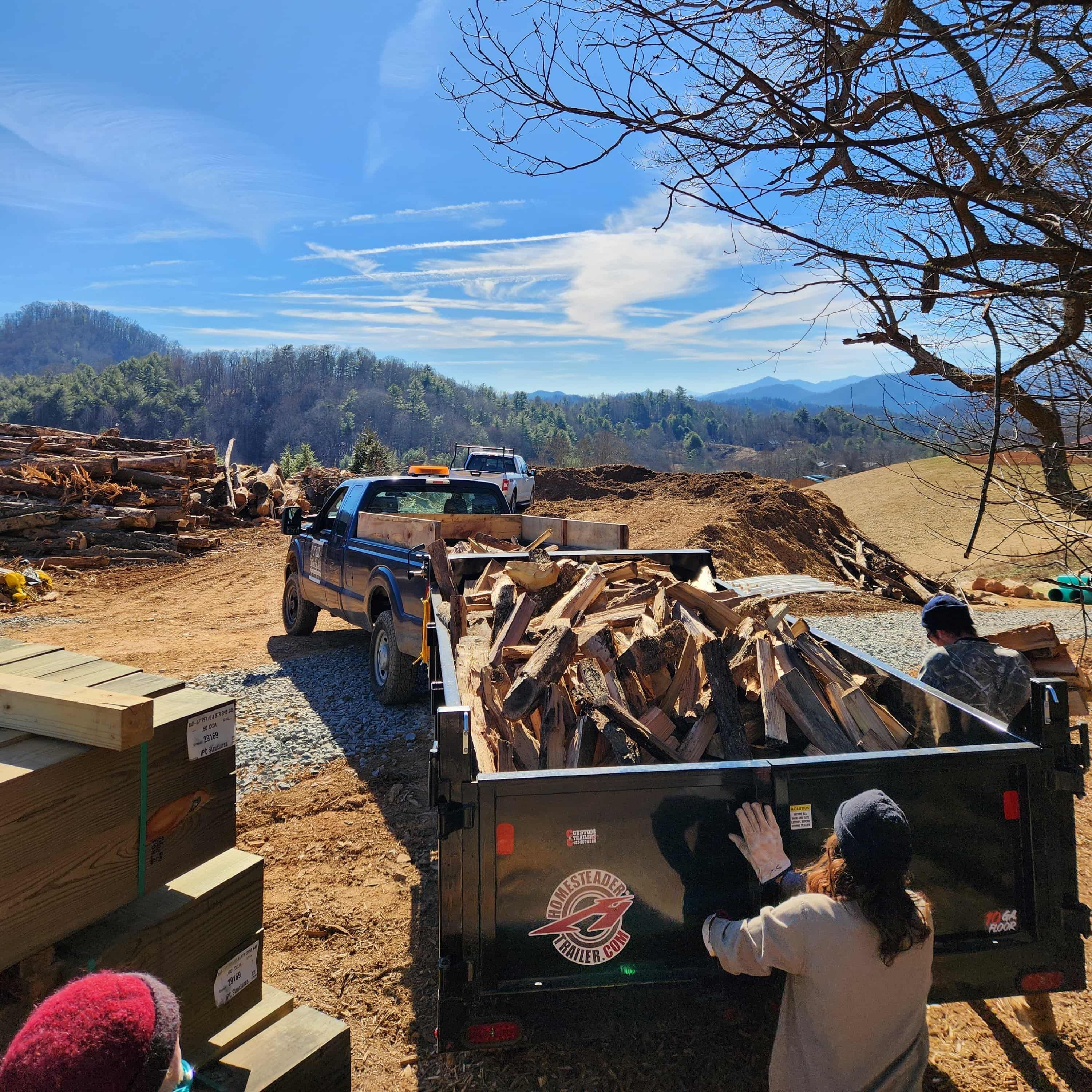
Workers across racial lines daring to strike for better wages. In the early colonies, poor English, Irish and Scottish indentured servants labored side by side with African and Native American workers. They often formed powerful alliances against brutal working conditions. Those alliances scared the ruling class enough that they created a new invention: the "white race." Not as a description of reality, but as a tool. A wedge to split solidarity by offering small privileges to one group at the expense of another.
By passing laws that gave minor advantages to European descendants while deepening the enslavement of African people, colonial powers succeeded in dividing laborers who had every reason to fight together. And it worked. For centuries afterward, the legacy of that division continued to suppress the possibility of cross-racial resistance, especially in rural communities. As ROAR puts it in their Stronger Together zine, racism has long been used to divide working people and keep them from seeing where the real power lies.
Today, ROAR’s work carries a model of support meant to remedy those divisions. Their programs are built on solidarity rather than gatekeeping. Support is offered without dividing people into deserving and undeserving, and without asking who qualifies based on race, status or background. Mutual aid here means that your struggle is connected to mine, and freedom is something we work toward together. After Hurricane Helene, that approach shaped everything they did. No paperwork. No means-testing. Just the steady work of getting people what they needed. Their seed libraries, firewood programs and ongoing mutual aid projects grow from the same principle: open-handed, community-driven and rooted in trust.
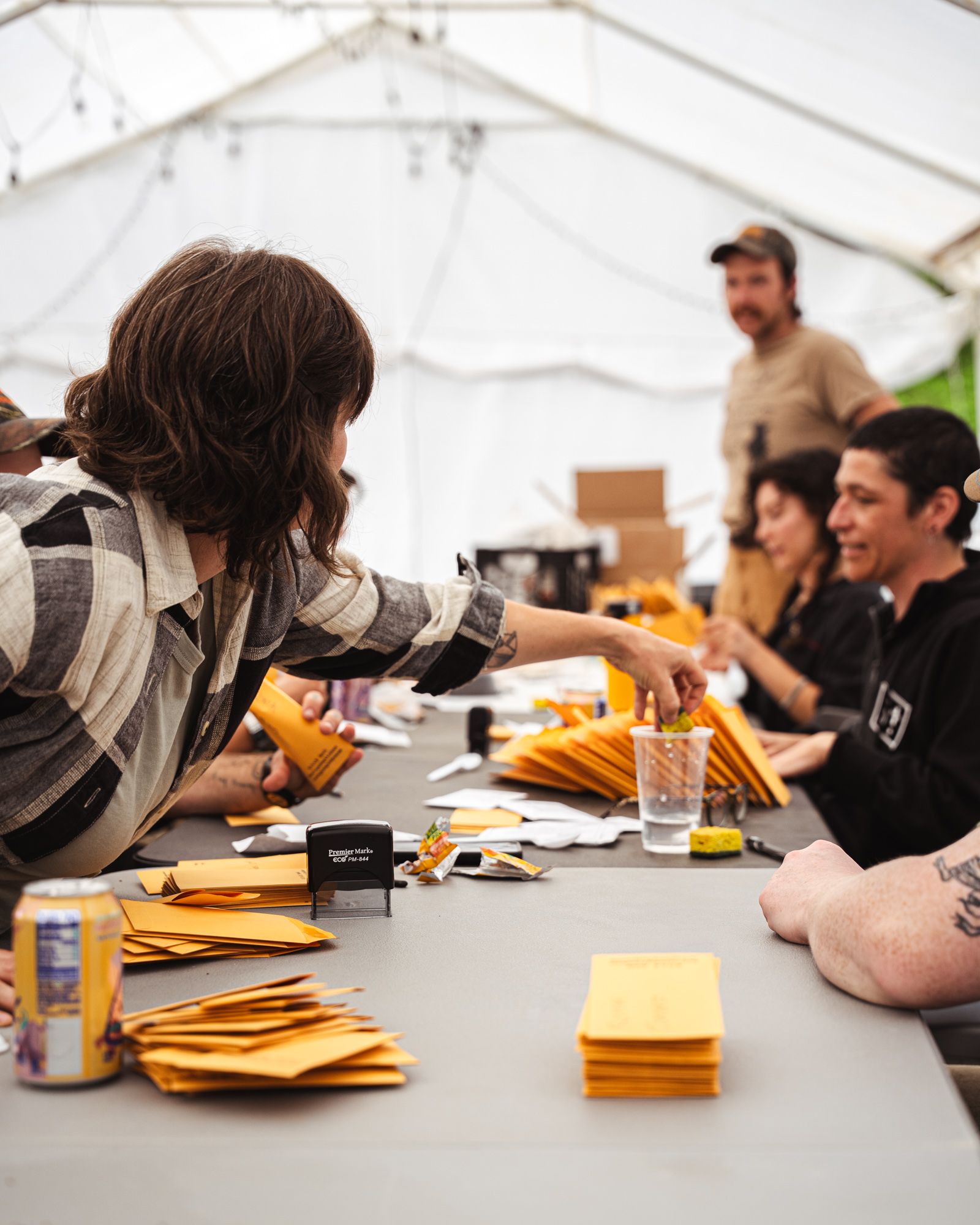
In Southern Appalachia, where rural communities are often flattened into caricatures of poverty, backwardness or bigotry, ROAR’s work tells a different story. These mountains have long been home to radical traditions. Maroon communities of escaped slaves and indentured servants. Multiracial union movements in the coalfields. Local campaigns for land rights and community survival. What ROAR builds today rises out of that history. Their work continues a much older story, one where rural people organize not because they are waiting for rescue, but because they know they can rely on each other.
Strengthening mutual aid networks. Investing in rural solidarity. Creating spaces for cultural resilience through projects like Honky Tonk Not Hate. When you look at what ROAR is doing today, you see more than disaster recovery. You see a reclamation of something fundamental that nearly slipped away. The knowledge that when united, people can withstand anything. Divided, communities are vulnerable to exploitation and loss. In their work, ROAR helps Southern Appalachia remember what it has always known. That real power lives in communities that choose one another, again and again, across every line that was meant to keep them apart.
